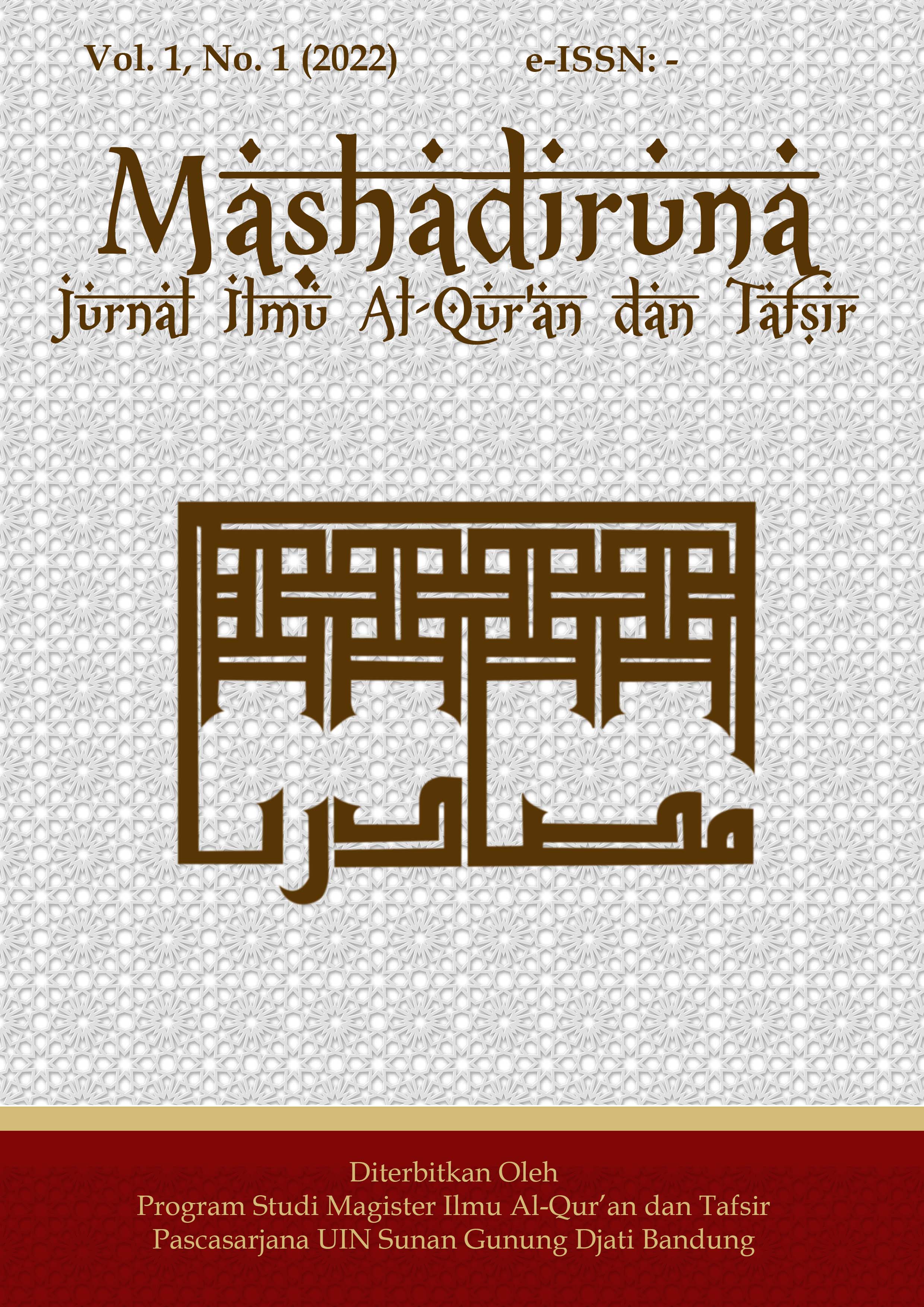The Concept of Dhikr in the Quran and its Relation to Mental health (Analysis Study of Surah Ar-Ra'd Verse 28)
DOI:
https://doi.org/10.15575/mjiat.v1i1.19395Keywords:
Purpose of life, Healthy life, Qur'anic path, spiritualityAbstract
Islam is very concerned about human beings, namely that they must live healthy lives in overall health situations and conditions, physically, mentally, spiritually, and socially. Mental health is key to a person's success in achieving a goal. If mentally ill, the continuation will find it challenging to get the purpose of his life. With a lot of dhikr either through the heart or verbally, or by both the heart and the tongue, you will get an inner experience that other people may not be able to get. Dhikr will open the veil in the hearts of people who in their lives only think about material things. Therefore, the author would like to reveal in this study that the concept of dhikr in the Koran is related to mental health in Q.S.Ar-Ra'd (13): 28. The Library Research method used in this research is through Content Analysis. In this study the author will use the Book of Tafsir Al-Azhar, the Book of Tafsir Al-Misbah, and the Book of Tafsir Al-Maraghi. As a reference book in this research. The analysis results of the word dhikr can be concluded, namely dhikr with the heart and continuously, for believers, it will thrill their hearts. Because they are afraid of Allah's punishment, leading to calm, serenity, and peace. So the result is a correlation between dhikr and mental health.References
Akhyar, I. Q. (2013). Al-Qur’an Dan Terjemah. Bandung.
Al-Baqi, M. F. A. (2001). Al-Mu’jam Mufahras Li Alfaz alQur’an al-Karim. Cairo: Dar al-Hadith.
Al-Ghazali. (2004). Ihya ’Ulumuddin (Purwanto, ed.). Bandung: Marja’.
Al-Maraghi, A. M. (1992). Tafsir Al-Maraghi (B. A. B. K.Anshori Umar, Hery Noer Aly, ed.). Semarang: CV. Toha Putra Semarang.
Amin, S. M., & Al-Fandi, H. (2018). Etika Berdzikir Berdasarkan Alquran dan Sunnah. Jakarta: Amzah.
Carnagie, D. (1956). Da’ Al-Qalaq Wabda’ Al-Hayah, cet. V, trans. By ’Abd Al-Mun’im Al-Zayyadi. Cairo: Maktabah al-Khanji.
Daradjat, Z. (n.d.). Kesehatan Mental. Jakarta: 2016.
Hamka. (1974). Kenang-Kenangan Hidup. Jakarta: Bulan Bintang.
Mani’abd Halim Mahmud, M. T. (2006). Jakarta: Pt. Raja Grafindo Persada.
Nakamura, K. (2005). Ghazali And Prayer (U. Fauzan, ed.). Bandung: Arsy Mizan.
Naufal, M., & Ahmad, A. (1999). Berdoa dan Bershalawat Ala Al-Ghazali. Yogyakarta. Mitra Pustaka.
Quasem, M. A. (1975). The ethics of al-Ghazali. Quasem.
Quraish Syihab. (1996). Membumikan al-Qur’an; Fungsi dan Peran Wahyu dalam Kehidupan Masyarakat (13th ed.). Bandung: Penerbit Mīzan.
Said, A. S. (2006). Tasawuf sebagai kritik Sosial. Bandung: Mizan.
Saleh, A. Y. (2018). Berdzikir untuk kesehatan Syaraf. Hikaru Publishing.
Schwine, R. M. (1997). ‘Ilm Al-Amradh Al-Nafsiyyah Wa Al-‘Aqliyyah,terj.oleh Ahmad ‘Abd Al-‘Azis Salamah. Kairo: Dar Al-Nahdhal Al-’arabiyyah.
Shihab, M. Q. (2013). Wawasan Al-Qur’an. Bandung: Mizan.
Team, A. (1992). Indonesian Islamic Encyclopedia. Jakarta: Djambatan.
Udin, M. (2021). Konsep Dzikir Dalam Al-Qur’an Dan Implikasinya Terhadap Kesehatan. Mataram: Sanabil.
Zahron, H. (2011). Al-Shihat Al-Nafsiyah Wa Al’Ilaaz Al-Nafsi. Cairo: Alamul Kitab.
Downloads
Published
Issue
Section
License
Authors who publish with this journal agree to the following terms:
- Authors retain copyright and grant the journal right of first publication with the work simultaneously licensed under a Creative Commons Attribution License that allows others to share the work with an acknowledgment of the work's authorship and initial publication in this journal.
- Authors are able to enter into separate, additional contractual arrangements for the non-exclusive distribution of the journal's published version of the work (e.g., post it to an institutional repository or publish it in a book), with an acknowledgment of its initial publication in this journal.
- Authors are permitted and encouraged to post their work online (e.g., in institutional repositories or on their website) prior to and during the submission process, as it can lead to productive exchanges, as well as earlier and greater citation of published work (See The Effect of Open Access).
